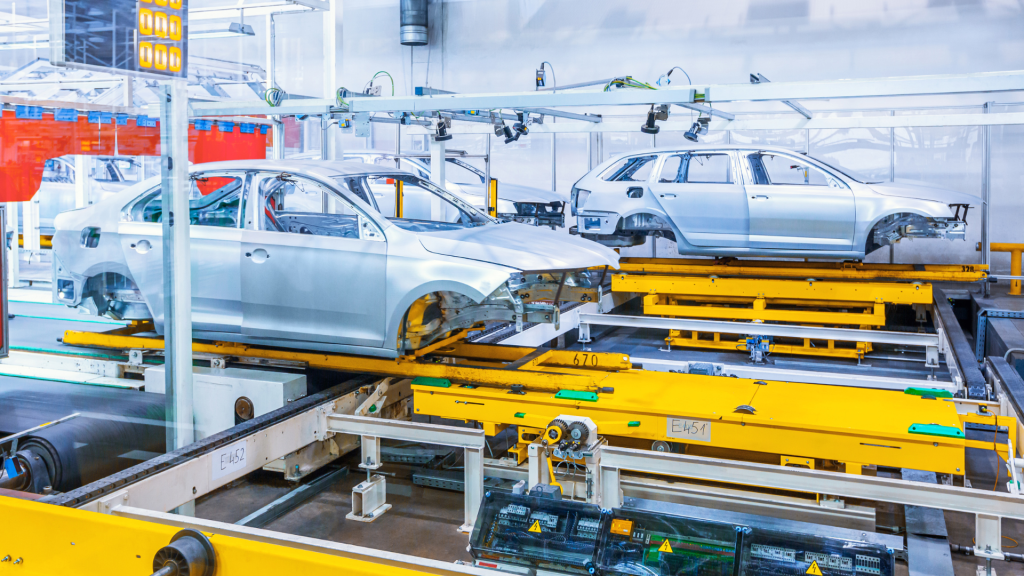Water treatment for the Automotive sector
Overview
Water treatment plays a vital role in the automotive sector by providing high-quality water for manufacturing processes, equipment maintenance, and environmental compliance. Water is extensively used in processes such as painting, coating, cooling, and washing, and its quality directly impacts the efficiency and durability of automotive products. Given the industry's commitment to sustainability and regulatory compliance, modern water treatment systems are designed to minimize water consumption, recycle wastewater, and reduce the environmental footprint of automotive manufacturing facilities.

Application
Water treatment systems support several critical applications in the automotive sector, including:
- Paint Shop Operations: High-quality water is essential for rinsing and preparation processes to ensure optimal adhesion of paints and coatings.
- Cooling Systems: Treated water is used in cooling systems to maintain the efficiency of manufacturing equipment and prevent scale formation.
- Parts Washing: Purified water is used in washing automotive components to remove contaminants before assembly or coating.
- Wastewater Treatment: Wastewater from manufacturing processes is treated to remove contaminants before discharge or reuse, ensuring compliance with environmental regulations.
- Boiler Feed Water: Treated water is used in boilers to prevent scaling, corrosion, and fouling, which can reduce the efficiency and lifespan of the equipment.
Technologies
To meet the specific requirements of the automotive industry, various water treatment technologies are employed:
- Reverse Osmosis (RO): Used to remove dissolved salts, minerals, and contaminants from water, ensuring high-purity water for critical processes.
- Ion Exchange: Effective for demineralising water and controlling hardness to prevent scale formation in cooling and boiler systems.
- Ultrafiltration (UF): Removes suspended solids, oil, grease, and other particulates, ensuring clean water for rinsing and washing.
- Biological Treatment: Aerobic or anaerobic processes are used to treat wastewater by breaking down organic matter.
- Membrane Bioreactors (MBR): Combines biological treatment with membrane filtration for efficient wastewater recycling.
- Zero Liquid Discharge (ZLD) Systems: Ensures complete water recycling by recovering water from waste streams, leaving minimal or no liquid discharge.
- Electrodeionisation (EDI): Produces ultra-pure water by removing ionic impurities, essential for sensitive applications like paint and coating.
In need of expert advise?
Don't hesitate to ask a question

- Derwent House, 42-46 Waterloo Road, Wolverhampton, WV1 4XB
- Tel: 01902-458-501
- Email: info@membracon.co.uk
Follow Us
Join our online community to see the latest news around Membracon and our sustainable solutions .
Our Products
- Anode Cells for Electrocoating
- Ultrafiltration Membrane System
- RO Membranes and Systems
- UV Bacterial Control
- Effluent Treatment
- Liquid Filtration Solutions
- Process Tank Integrity Check
- Rectifier
